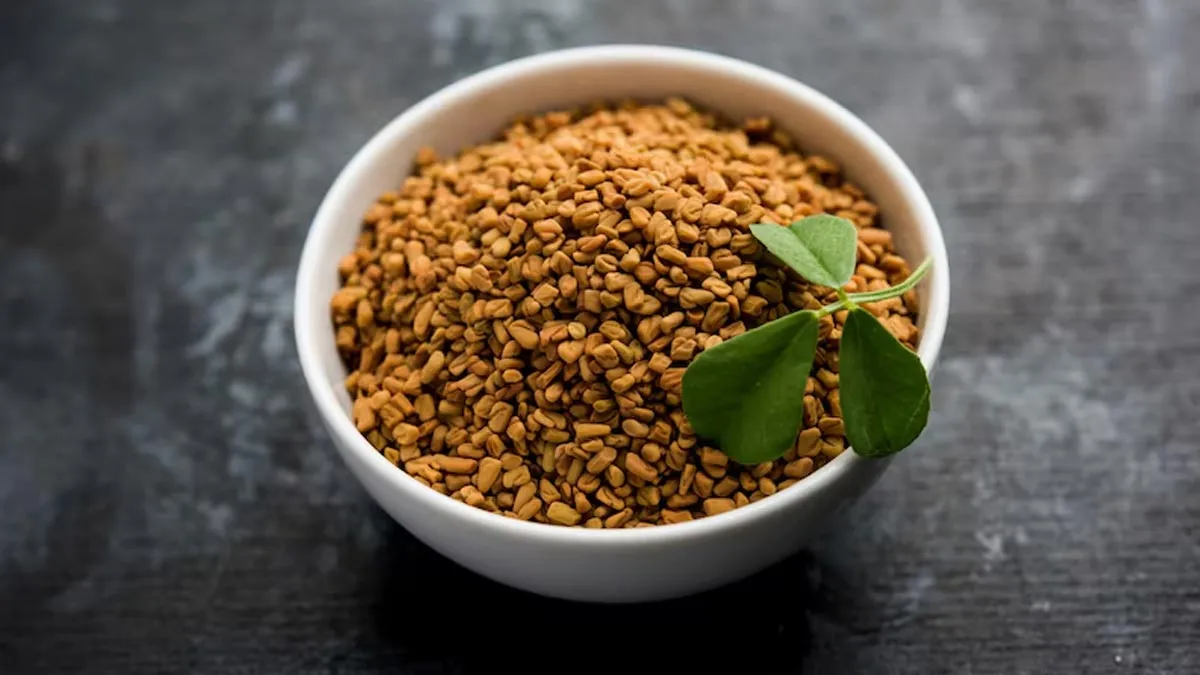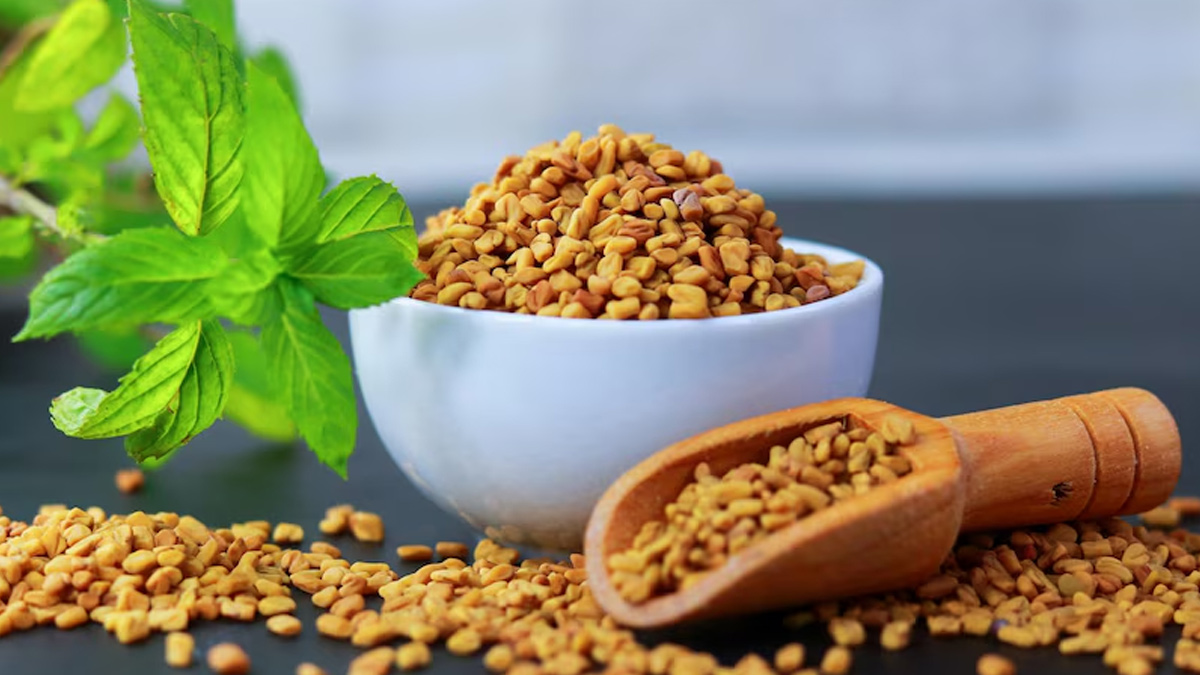
Fenugreek seeds, widely used in culinary and medicinal practices, have garnered significant attention for their health benefits. Rich in fibre, antioxidants, and bioactive compounds, these seeds have been shown to lower cholesterol, regulate blood sugar levels, and reduce inflammation. Scientific studies have reinforced these claims, making fenugreek a valuable addition to a healthy diet.
Table of Content:-
Fenugreek and Cholesterol Reduction

High cholesterol levels are a major risk factor for cardiovascular diseases, including heart attacks and strokes. Fenugreek seeds contain saponins, which help prevent cholesterol absorption in the intestines and facilitate its excretion. Additionally, their high fibre content binds to cholesterol and prevents it from entering the bloodstream.
A 2020 study investigated the impact of fenugreek seed supplementation on lipid profiles in individuals with high cholesterol. The results indicated a significant reduction in total cholesterol, LDL (bad cholesterol), and triglycerides while increasing HDL (good cholesterol). The study attributed these effects to fenugreek’s soluble fibre, which reduces cholesterol absorption in the intestines.
Another study published in Phytotherapy Research observed similar results among participants with type 2 diabetes. The research found that consuming fenugreek seeds daily led to an 8-10% reduction in LDL cholesterol and a slight increase in HDL cholesterol. This demonstrates the seeds' potential to improve cardiovascular health while also managing blood sugar levels.
Managing Blood Sugar Levels with Fenugreek

Fenugreek seeds have been extensively studied for their role in blood sugar regulation, particularly for individuals with diabetes or insulin resistance. The seeds contain galactomannan, a type of soluble fibre that slows down digestion and sugar absorption, leading to a more gradual release of glucose into the bloodstream. Furthermore, fenugreek contains an amino acid called 4-hydroxyisoleucine, which enhances insulin sensitivity and helps regulate glucose metabolism.
A study published in the International Journal of Molecular Science evaluated the impact of fenugreek supplementation in prediabetic individuals. The results showed that regular consumption improved insulin function and delayed the progression to type 2 diabetes, highlighting fenugreek’s potential in early intervention.
Also read: Fenugreek Seeds for Eczema: Here's How You Can Use Them for Relief
Fenugreek’s Anti-Inflammatory Properties

Chronic inflammation is a root cause of numerous health conditions, including arthritis, cardiovascular diseases, and autoimmune disorders. Fenugreek seeds possess strong anti-inflammatory properties due to their high antioxidant content and bioactive compounds, such as flavonoids and alkaloids.
A study published in Nutrients examined fenugreek’s impact on oxidative stress and inflammation in individuals with metabolic syndrome. The results demonstrated that fenugreek supplementation led to a significant reduction in inflammatory markers while enhancing antioxidant activity, protecting cells from damage caused by free radicals.
How to Incorporate Fenugreek Seeds into Your Diet

Fenugreek seeds can be consumed in various ways to maximise their health benefits:
- Soaked seeds: Soak fenugreek seeds overnight and consume them in the morning on an empty stomach to support blood sugar control.
- Fenugreek tea: Boil the seeds in water and drink the strained liquid to reduce inflammation and aid digestion.
- Powdered form: Add fenugreek powder to smoothies, yoghurt, or curries for an easy nutritional boost.
- Fenugreek sprouts: Sprouting the seeds enhances their nutritional profile and makes them easier to digest.
Also read: Here’s Why Should You Drink Fenugreek Water Empty Stomach?
Conclusion
Fenugreek seeds offer a natural and effective way to improve cholesterol levels, regulate blood sugar, and combat inflammation. Backed by scientific research, these seeds hold great promise in managing chronic conditions such as diabetes, cardiovascular diseases, and arthritis. Incorporating fenugreek into your daily routine may provide long-term health benefits, making it a simple yet powerful addition to a balanced diet. However, individuals on medication for diabetes or cholesterol should consult their healthcare provider before consuming fenugreek regularly, as it may interact with certain drugs.
Also watch this video
How we keep this article up to date:
We work with experts and keep a close eye on the latest in health and wellness. Whenever there is a new research or helpful information, we update our articles with accurate and useful advice.
Current Version
